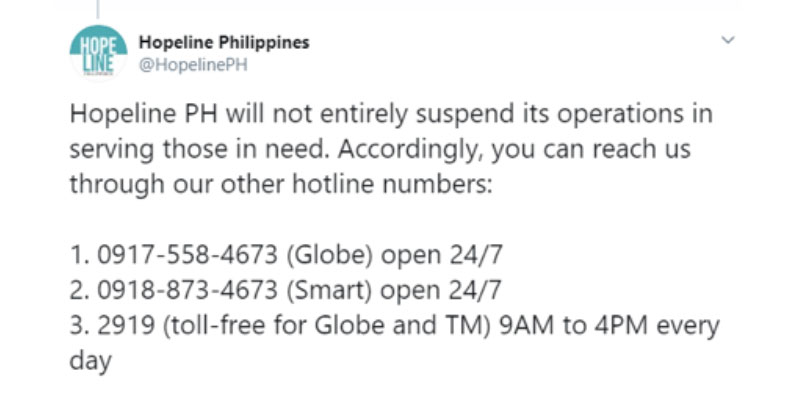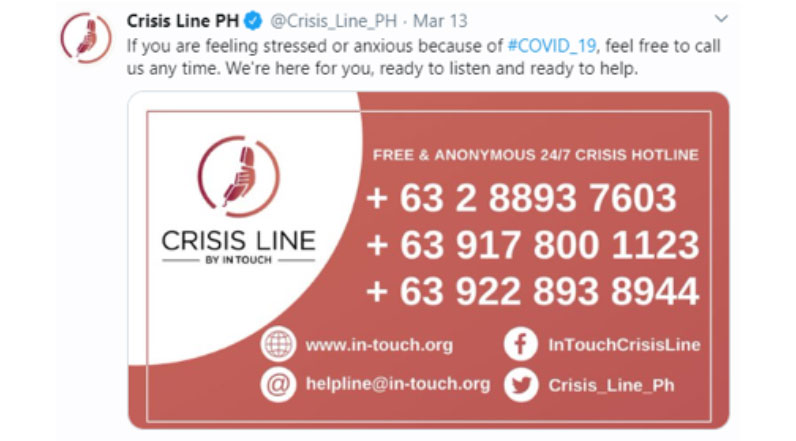9 Ways To Stay Mentally Strong In The Midst Of The COVID-19 Pandemic
7 min readThis enhanced community quarantine amid the threat of the new coronavirus disease has gotten us all staying indoors, and even more focused on the news and updates.Â
We can’t be on our regular, familiar routines—and this shakes things up, makes us uncomfortable, and challenges our faith and resolve.

On the flipside, this is also a time to try as much as possible to break into a new routine at home. All this free time can be used to reflect, go deeper into ourselves, practice being more grateful, and spend more time with our families.
In light of the COVID-19 crisis and information overload, here are ways that you can take care of your mental health. These things are guaranteed to boost your mood and keep your mind off things, even just for a while.
1. Seek accurate information and help spread it
“Reduce stress in yourself and others.†This is one of the US Center For Disease Control And Prevention’s (CDC) advice on how to manage stress and anxiety amid the COVID-19 pandemic.
There’s no way one can just nonchalantly say, “Be positive!†at a time like this, and expect to be believed. Your negative feelings right now are valid. But don’t pass your stress on to others by panicking by believing false or alarmist information—or spreading this to other people.
The best thing we can all do, for our own and other’s mental state, is to turn to accurate information about what’s really going on right now.
First, you can follow our COVID-19 updates. Second, subscribe to accurate news sites and sources, especially the World Health Organization (WHO), the CDC website, and our very own Department of Health (DOH) and inter-agency updates from credible news sources.Â
What we need right now are real people. Not those that cause more panic, but the ones that are taking things seriously, and in a more informed way.
Start by politely telling friends or family members who spread fake news to stop it. Set boundaries and tell them that what they’re doing is not helping the community at all. You can also counter their wrong arguments by sending links of correct information.Â
2. Stay connected and communicate
You’re lucky if you have your loved ones at home in this time of crisis. But if not, you can still connect with people online. This is the perfect time to catch up with friends, both near or far, and see how they are.
And if need be, ask for help. Whether you’re diagnosed with a mental health disorder or not does not matter. If it gets too much, pour your heart out on loved ones ,or chat with your closest friends.
If you’d rather talk to a stranger with no judgment, contact Hopeline Philippines’ 24/7 Suicide Prevention and Crisis Intervention hotline:Â

There’s also the Crisis Line PH, which is a “free, anonymous, and confidential helpline support for anyone who needs it.â€

And since physical interactions are limited especially with professionals, you can go for online counseling/therapy and behavioral health services websites.
One reliable website that provides therapists at any time for a fee is Better Help (https://www.betterhelp.com/start/). You can choose the type of therapist you’re most comfortable talking to. The payment is monthly, and you can set up your own time to have an online therapy session.
3. Work out
Walk out of this one-month quarantine with a healthy mind and body. Get into the habit of working out—if you’re still not on it, of course.
Home workouts are totally doable and some of these are even as short as seven minutes, for starters! You’ll only need to get the ball rolling. After a while, you can expand to longer workouts and you’re going to see the clarity and positivity that this will bring in your life.
After being consistent and seeing results at the end of the month, maybe you won’t even need to pay for the gym anymore. That’s one more expense turned savings for you.
Exercise outdoors and get some fresh air whenever you can. Observe social distancing, and minimize touching surfaces. Sanitize regularly.
4. Disconnect, pray, meditate
We understand that not everyone is able to workout, not even within their homes. One other way to take care of your mental health is to limit the time you spend on social media and lessen your worries and anxieties with meditation.
If you can, lie down in bed, go to Youtube or Spotify, and find a guided meditation audio you can follow. You can also use mobile apps like Calm or Headspace, which are really good for people who are new to meditation.
You can also find apps whatever your religion to help guide you with prayers, some of these are:
- The holy rosary app for Catholics
- Qibla Compass. A 3-in-1 app for Muslims prayers. It helps them with such things as the qibla compass (direction of the Kaaba in Mecca where Muslims face during prayer), prayer times, and Hijri Calendar and date conversion.
It’s also the perfect time to practice gratefulness. If you can, write down things that you are grateful for despite all this. You are healthy, you are safe, you have food on the table. You will endure. This, too, shall pass.
5. Eat healthier
This is a battle against a new virus. Prevention is always better than cure. If you can, always be more conscious of what you eat to help boost your immune system. Always go for a healthy balanced diet, and eat more fruits and vegetables especially in this time of uncertainty.
6. Stay sober
The CDC includes “increased use of alcohol, tobacco, or other drugs†in their list of bad habits that might be brought on by the stress of dealing with a pandemic.
Sure it’s easy to fall back to drinking and smoking in this time where you might be bored, but these things will also compromise your immune system. Know that even though the most susceptible to COVID-19 are the elderly, it’s also the people with underlying diseases that are most at risk.
Who knows, staying away from drinks, parties, and socializing might just be the rest your body needs. You’ll gain something of value from this, as you have lesser distractions and you now have more time to think things through and just be with yourself.
7. Find a new hobby Â
Gardening, painting, or learning a musical instrument via YouTube or mobile app—these are just some of the things you can get started with all these free time. When you’re concentrating on learning something, you tend to focus and get in a flow state, which means you get your mind off these worrying things even just for a bit. And who knows? You might even be able to earn extra income from all these!
This is also the perfect time to look at your money-making options. See all the personal finance projects you can take to improve your life in this month of community quarantine.
8. Declutter
If you haven’t gotten into decluttering yet, turn to videos, articles or books about decluttering such as Marie Kondo’s The Life-Changing Magic of Tidying Up: The Japanese Art of Decluttering and Organizing—she also has a Netflix series, you know.Â
On Marie Kondo’s Netflix series Tidying Up, you’ll see people changing their lives after they have applied the KonMari method, and decluttered and let go of a lot of old things in their house. You will instantly feel lighter after you’ve done this work of letting go of unnecessary stuff around your house.
You can then donate these discarded clothes and items to charitable institutions—when quarantine lifts, of course.
9. Get enough sleep
I know it’s not easy to sleep during these troubling times, but combining all these anti-stress, mental health boosting activities on the list should at the very least, help you get a better sleep.
Use this extra time to get more proper sleep in order to build a stronger immune system. At first you may not be able to commit to your ideal sleep schedule, but this is your time to correct your body clock and maybe go to bed at least 15 minutes earlier than usual.
This will keep the ball rolling for your body to get used to this wind down routine. After a month, you will feel so much stronger and well rested and you will have better defense against the virus in case of exposure.
According to a study from the University of Tübingen in Germany, sleep has the potential to enhance the efficiency of T-cell responses. This is especially relevant given the high prevalence of sleep disorders and conditions which are characterized by impaired sleep, these include depression, chronic stress, and aging.
Other sources: Mental Health. Org, MHE-SME.org, CDC
